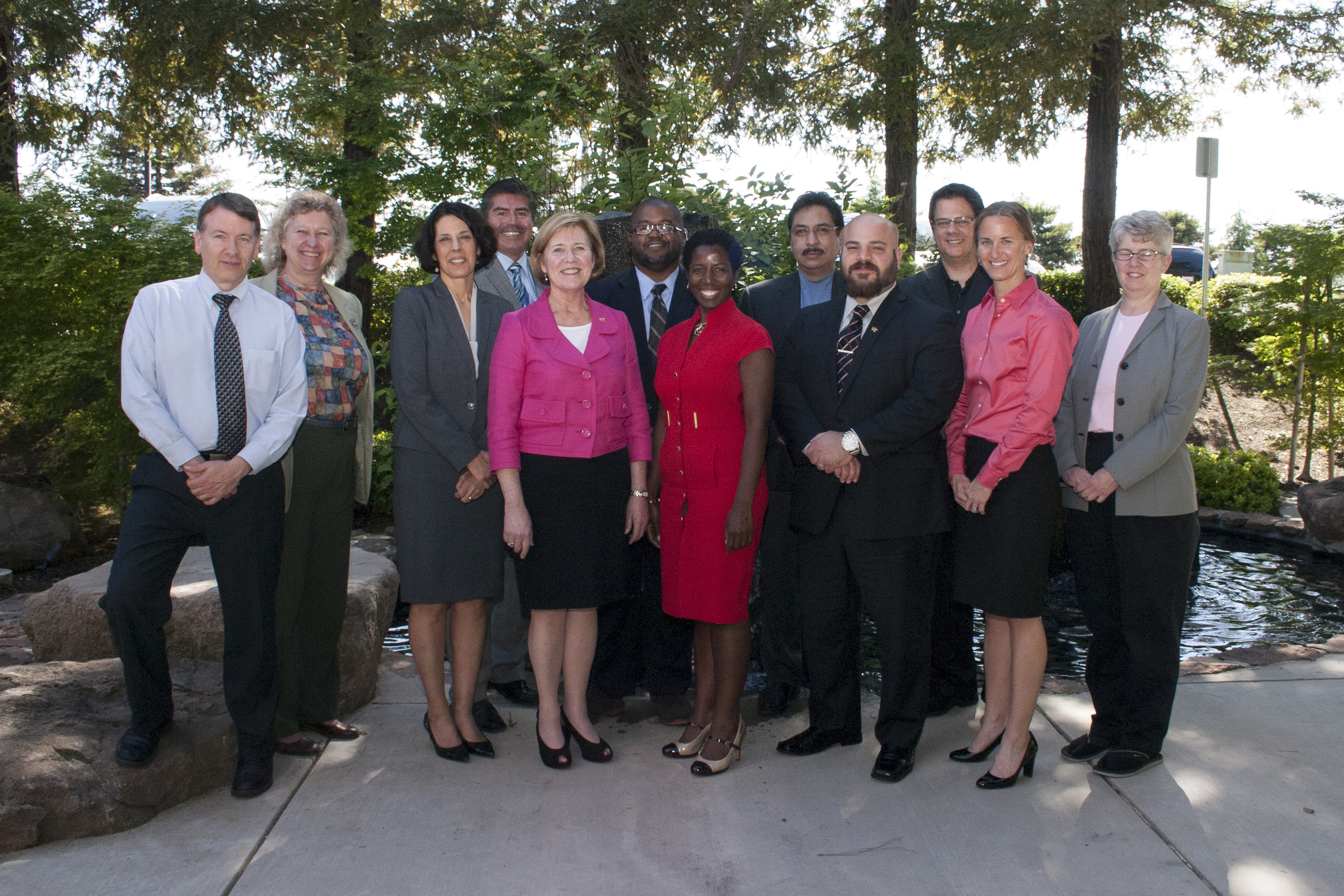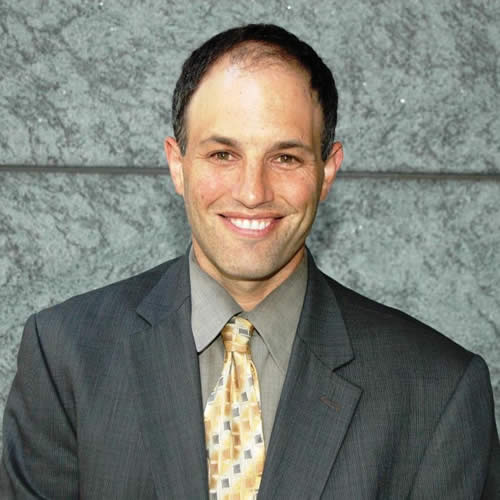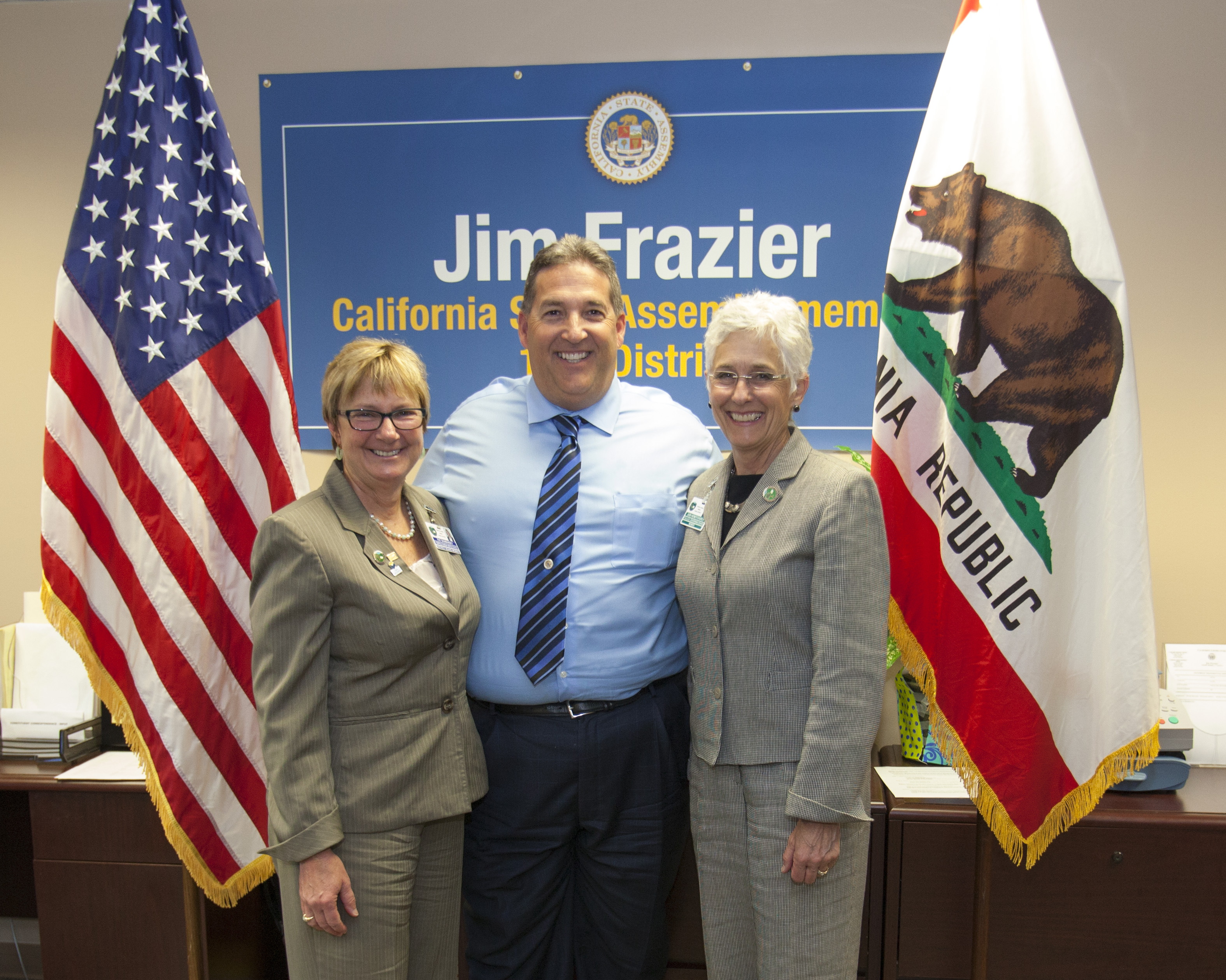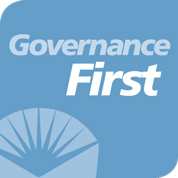The Linked Learning approach to high school reform is based on the principle of equity and has a fundamental goal of increasing postsecondary opportunities for California’s Latino, African-American, and low-income students. Common to the Linked Learning approach are the practices of project-based learning, career-themed courses and experience, and personalized support—and reducing the use of practices associated with limiting college prep access, such as tracking and lack of articulation across grade spans.
Save the date for AEC: Dec. 5-7 in San Diego
Now’s the time to start making plans for CSBA’s Annual Education Conference and Trade Show, which runs from Dec. 3-5 in San Diego. Register and make your hotel reservations now to ensure your place at the convenient headquarters hotel, the San Diego Marriott Marquis & Marina, or one of several other local hotels. “There’s something for everybody here at this annual education conference. … It’s gonna be dynamite,” says Rowland USD board member Heidi Gallegos, a member of the conference planning committee, in a video on the conference site: aec.csba.org, which has registration details.
Membership shows strength in numbers
CSBA exists for and because of its members. Members rely on us to advocate for them, coordinate their advocacy, provide governance training, inform them and support them in ways that no other educational organization can match. At the same time, CSBA relies on members’ continued dues support and participation.
CSBA kicks off post-doctoral fellows program
The CSBA post-doctoral fellows program is a new collaboration between Drexel University and CSBA. The fellows program is the result of CSBA’s effort to establish partnerships with universities and other organizations. These partnerships help advance the policy leadership and priorities of CSBA by adding to CSBA’s human capital, expanding the high-quality information we provide to the members, and building understanding of governance issues and the needs of governance teams.
Communicate now about Common Core
With the governor’s announcement in the May Revision about potentially directing $1 billion to support the implementation of Common Core State Standards, the buzz is beginning about Common Core among the general public, parents and those who look for reasons to point to the failure of our public schools. Do you have a communications plan in place to communicate to your parents and constituents about Common Core?
CSBA’s top 10 issues heading into Budget Conference Committee
This blog post highlights the top 10 educational actions/recommendations within the state Senate and Assembly budget proposals.
CORE’s Rick Miller briefs CSBA delegates on federal NCLB waiver request
Local Educational Agencies can’t rely on the California Department of Education to figure out how to implement the Common Core State Standards and other key education reforms looming on the horizon. Speaking to members of CSBA’s Delegate Assembly in Sacramento May 18, Rick Miller, former deputy state schools superintendent and executive director of the California Office to Reform Education, said that’s one reason 10 school districts banded together to form the CORE coalition, which is optimistic that federal education officials will approve its waiver plan that releases participating LEAs from some of the harsher requirements of the No Child Left Behind Act.
Board Member Action Day: Speaking truth to power
Demonstrating their dedication to children and passion for public education, members of school district and county office of education governance teams throughout California gathered at the home offices of their state representatives to advocate for local governance and other issues vital to public schools as part of CSBA’s Board Member Action Day May 10.
Common Core tests, new science standards trump API changes at SBE’s May meeting
An update on assessments being developed by the Smarter Balanced Assessment Consortium showed progress on test development including the conducting of cognitive labs, small-scale trials and the almost completed assessment pilot to ensure validity of the tests for 2014-15. The process is also validating methods of special presentation styles for special needs students. Next to come is the one-year public field test of the system to develop customer familiarity.
Budget discussions crescendo as governor’s May Budget Revision nears
Next week, on Tuesday, May 14, the governor will unveil the May Budget Revision for fiscal year 2013-14. Details about his revision are beginning to surface, as are additional proposals. On May 8, Assembly Democrats announced their plans for the state budget, naming it the “Blueprint for a Responsible Budget.” In addition to calling for a ballot measure in 2014 to establish guidelines for a richer state reserve, a strong focus of the Blueprint is children and education. For K-12, they call for all school districts to get their share of previous funding cuts repaid as Proposition 98 grows.











